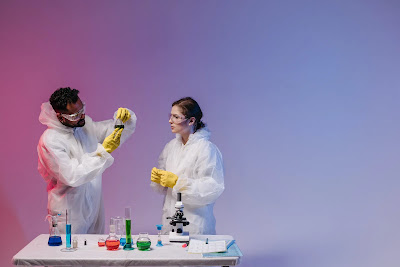“Managing Group Work Conflicts in Laboratory Experiments: Causes, Effects, and Strategies”
I. Introduction
This blog post will focus on group work conflicts in laboratory experiments, which is a common issue in academic and professional settings. It is crucial to address this topic as conflicts can hinder productivity and negatively impact the learning experience. This post will provide a brief overview of the primary causes of conflicts in group work.
II. Causes of group work conflicts
There are various reasons why conflicts may arise in group work. One of the main factors is differences in work styles & preferences. Team members may have different ways of approaching tasks, which can lead to misunderstandings & disagreements. Another common cause is personality clashes, where individuals have different communication styles or values that do not align with each other. Communication breakdowns may also occur when team members fail to effectively share their ideas or concerns, resulting in misunderstandings or misinterpretations. Moreover, an unequal distribution of workload or contribution can also cause resentment & conflict within a group.
III. Effects of group work conflicts
Group work conflicts can have various negative effects. First, they can result in decreased productivity & efficiency, as team members may become distracted or disengaged from the task at hand. Additionally, conflicts can have a negative impact on the learning experience, as they may create a tense or uncomfortable atmosphere that can make it difficult for individuals to contribute or learn effectively. Finally, conflicts can damage relationships & reputations, both within the group and in broader academic or professional circles.
IV. Strategies for preventing or resolving group work conflicts
Fortunately, there are several strategies that can be employed to prevent or resolve group work conflicts. These include establishing clear communication & expectations from the start, encouraging active listening & respect for differing opinions, promoting teamwork & collaboration, delegating tasks fairly & effectively, and addressing conflicts early & directly.
V. Conclusion
Group work conflicts are a frequent obstacle in laboratory experiments & other academic or professional settings. Nonetheless, by utilizing the strategies mentioned earlier, people can cultivate effective group work skills & reduce the harmful consequences of conflicts. We urge readers to apply these techniques in their own work & prioritize the acquisition of robust group work skills to thrive in future endeavors.





